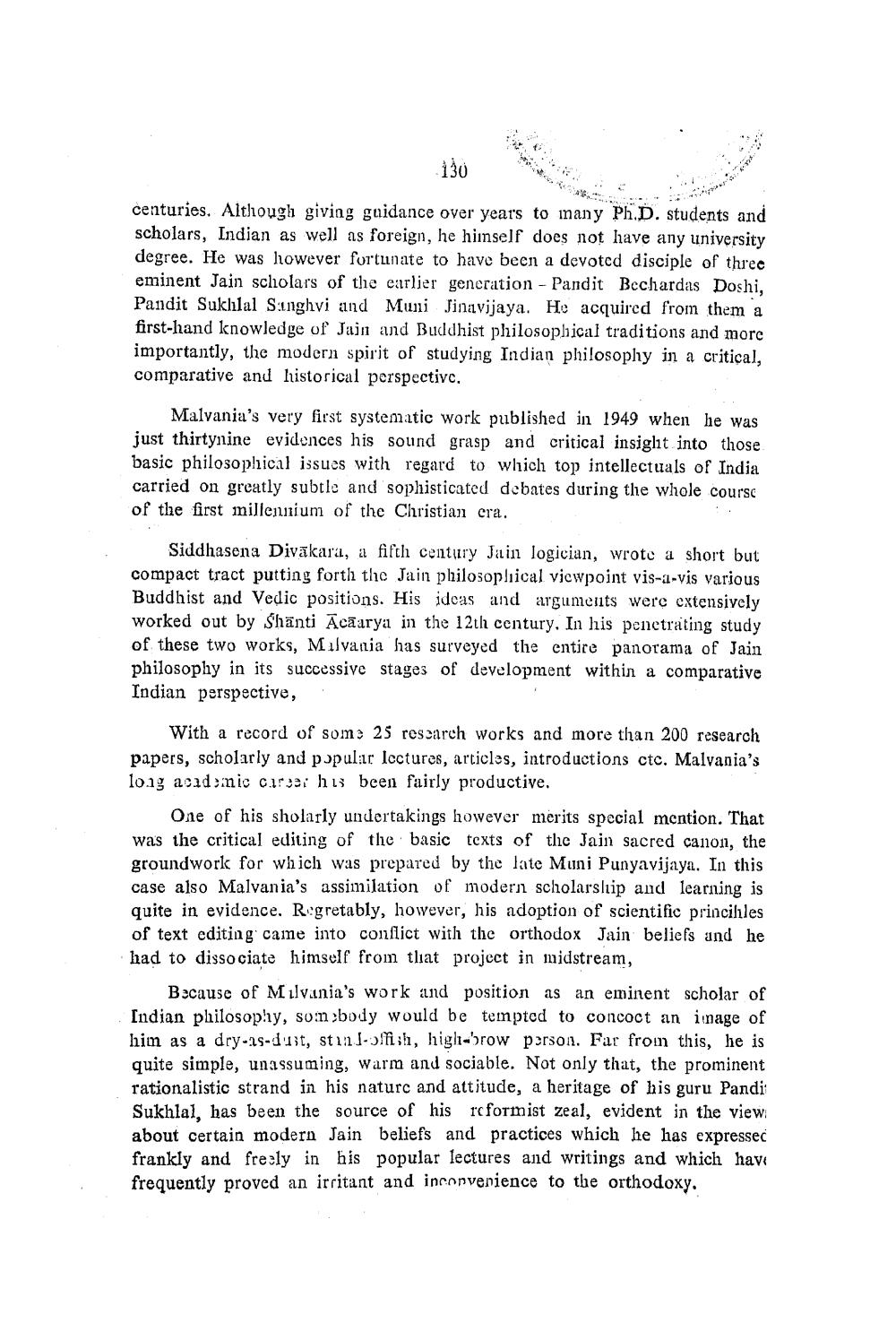________________
130
centuries. Although giving guidance over years to inany Ph.D. students and scholars, Indian as well as foreign, he himself does not have any university degree. He was however fortunate to have been a devoted disciple of three eminent Jain scholars of the earlier generation - Pandit Bechardas Doshi, Pandit Sukhlal Sanghvi and Muni Jinavijaya. He acquired from them a first-hand knowledge of Jain and Buddhist philosophical traditions and more importantly, the modern spirit of studying Indian philosophy in a critical, comparative and historical perspective,
Malvania's very first systematic work published in 1949 when he was just thirtynine evidences his sound grasp and critical insiglit into those basic philosophical issues with regard to which top intellectuals of India carried on greatly subtle and sophisticated debates during the whole course of the first millenium of the Christian cra.
Siddhasena Divakara, a fifth century Jain logician, wrote a short but compact tract putting forth the Jain philosoplical viewpoint vis-a-vis various Buddhist and Vedic positions. His ideas and arguments were extensively worked out by Shanti Ācāarya in the 12th century. In his penetrating study of these two works, Mulvania has surveyed the entire panorama of Jain philosophy in its successive stages of development within a comparative Indian perspective,
With a record of som: 25 research works and more than 200 research papers, scholarly and popular lectures, articles, introductions ctc. Malvania's lo.ng acadonic cursa: hus been fairly productive.
One of his sholarly undertakings however merits special mention. That was the critical editing of the basic texts of the Jain sacred canon, the groundwork for which was prepared by the late Muni Punyavijaya. In this case also Malvania's assimilation of modern scholarslip and learning is quite in evidence. Regretably, however, his adoption of scientific princihles of text editing came into conflict with the orthodox Jain beliefs and he had to dissociate himself from tliat project in midstream,
Because of Milvania's work and position as an eminent scholar of Indian philosop!y, soin body would be tempted to concoct an inage of him as a dry-as-dut, stan l-
o h, highbrow person. Far from this, he is quite simple, unassuming, warm and sociable. Not only that, the prominent rationalistic strand in his nature and attitude, a heritage of his guru Pandi Sukhlal, has been the source of his reformist zeal, evident in the view about certain modern Jain beliefs and practices which he has expressed frankly and freely in his popular lectures and writings and which have frequently proved an irritant and inconvenience to the orthodoxy.




